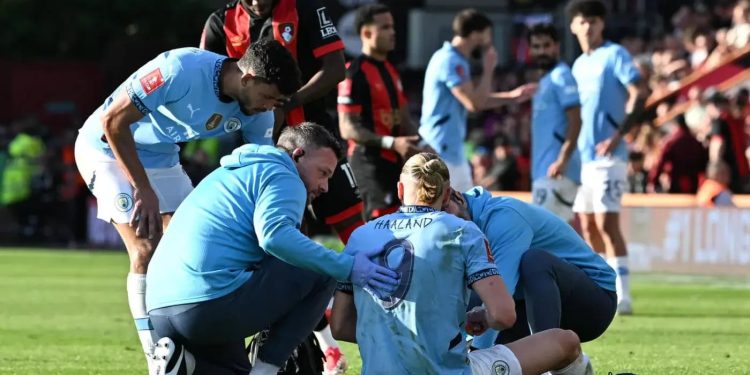New Study Advocates for Mandatory Four-Week Break to Protect Soccer Players’ Health
In a new study released by the global players’ union FIFPRO, a four-week mandatory off-season break for professional soccer players is being proposed. This includes a two-week blackout period where players would have no communication with their clubs or national teams. The recommendation comes as part of a broader effort to safeguard player welfare amid increasing concerns over calendar congestion and excessive workloads in the sport.
The study, which garnered the consensus of seventy medical and performance experts, outlines twelve essential safeguards aimed at protecting players from burnout and injury. Among these recommendations is the necessity for a minimum four-week retraining period following the off-season before players return to competitive action.
Darren Burgess, chair of FIFPRO’s High-Performance Advisory Network, emphasized the importance of understanding the human body’s response to performance and injuries. “Decoding the human body, performance, and sport-related injuries will be a lifelong scientific exercise for all of us,” he stated. “The results of this study show that certain minimum standards, such as adequate rest between matches and proper off-season breaks, are not only common sense but also aligned with scientific evidence and required by global occupational health and safety standards.”
The timing of this study’s release is significant, as it comes just days before the expanded FIFA Club World Cup kicks off in the United States, raising concerns about player welfare following a grueling European season. FIFPRO is urging immediate implementation of the proposed safeguards, which also include managing travel fatigue with mandated rest periods after long-haul flights, a required one-day off each week during the season, and a one-week mid-season break devoid of travel, training, or media commitments.
Moreover, the study highlights the need for specific workload protections for academy players under the age of 18. To establish each recommendation, a minimum of 75 percent agreement was necessary among the participating experts, with a majority working for football clubs and the remainder for national teams.
“If we can all agree that health comes first, then we should take steps to implement these safeguards,” said FIFPRO’s Medical Director, Vincent Gouttebarge. The study’s findings echo concerns raised in October when FIFPRO, along with the European leagues’ group and Spain’s LaLiga, filed a joint complaint to European Union antitrust regulators. They accused FIFA of “abuse” regarding the expanding football calendar’s detrimental impact on player wellbeing.








